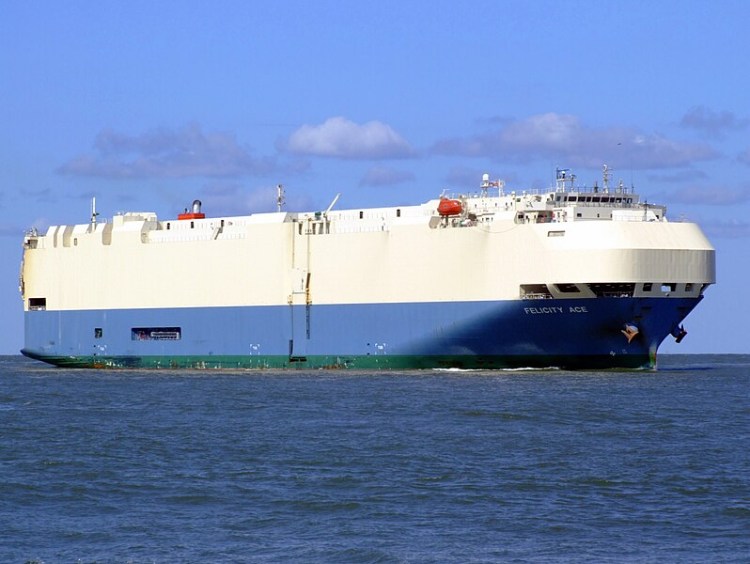Why Are Over 4,000 Luxury Cars Now Lying at the Bottom of the Sea?
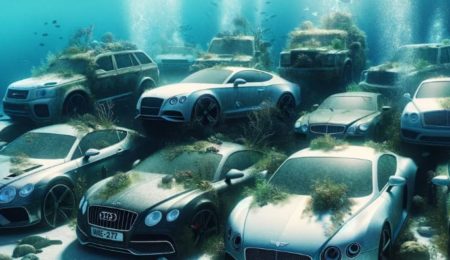
A disastrous event transpired on the high seas in February of 2022. Felicity Ace, a gigantic cargo ship transporting thousands of luxurious cars across the Atlantic Ocean, caught fire. The massive ship eventually succumbed to the relentless flames, sinking beneath the waves with a doomed cargo worth hundreds of millions of dollars. What caused this tragic event? Let’s uncover the whole story.
Table of Contents
The 656-foot-long Felicity Ace Was Traveling from Germany to the USA on the Day of the Tragedy
The Felicity Ace, categorized as a “Pure Car Carrier,” could sail at speeds up to 22.3 knots. It had the capacity to carry 17,738 tons and a gross tonnage of 60,118 tons. Constructed in 2005, the vessel had a length of 199.99 meters with an engine power of a whooping 15,286 kW!
The 656-foot-long roll-on/roll-off car-carrying ship caught fire in the North Atlantic on 16 February 2022 at around 9 a.m. The ship was carrying over 4,000 luxury cars when the disaster occurred 90 nautical miles (around 167 km) southwest of Portugal’s Azores archipelago (a cluster or chain of islands).
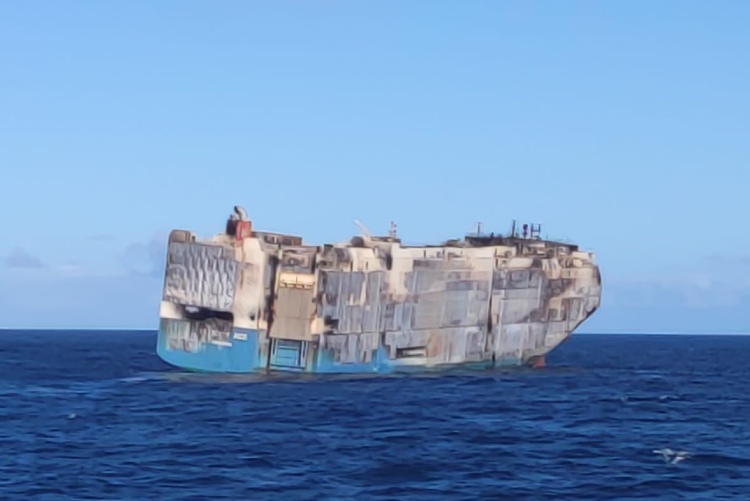
Despite attempts to tow the ship, it lost balance during the towing operation. Eventually, it sank roughly 25 nautical miles (around 46 km) beyond Portugal’s exclusive economic zone, in a location with a depth of approximately 9,842 feet.
The 22-person crew was securely rescued with the assistance of commercial ships and helicopters as the fire blazed for several days. Following the outbreak of the fire in the cargo hold, it rapidly spread.
The Portuguese Navy managed the rescue operation, guaranteeing the crew’s safe retrieval and transportation to a nearby hotel for support. On 25 February 2022, the fire was tamped down.
The Massive Cargo Ship Was Transporting an Estimated $401 Million Worth of Cars!
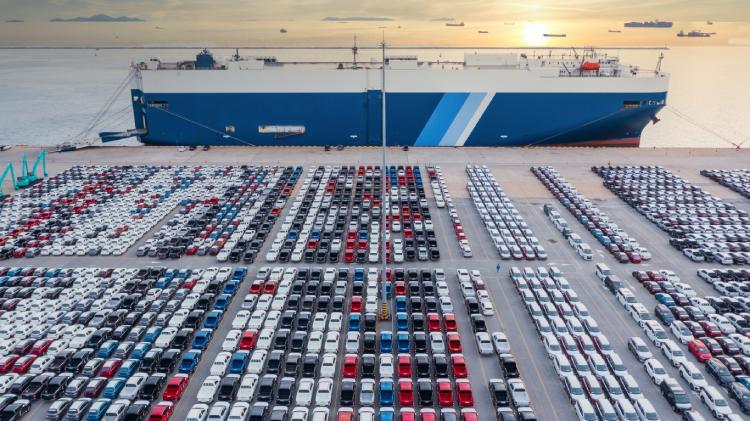
The Felicity Ace vessel was carrying an estimated $401 million (£295 million) worth of cars when the accident occurred! The cargo included a variety of luxury vehicles, such as Porsches, Audis, Bentleys, and Lamborghinis.
Among the vehicles on board were 85 Lamborghini cars, including 15 limited edition Aventador Ultimae models. Additionally, the vessel was also carrying 189 Bentleys, 1,110 Porsches, and the final batch of Lamborghini Aventadors. The cargo also included a 1977 Land Rover Santana (a knock-down kit of a Land Rover Defender), a Porsche 718 Boxster GTS 4.0, and the 65th Honda Prelude SiR ever built. All the exquisite automobiles on board the Felicity Ace are now deemed beyond recovery.
The Batteries of Onboard Cars Are Thought to Be the Reason Behind Fire
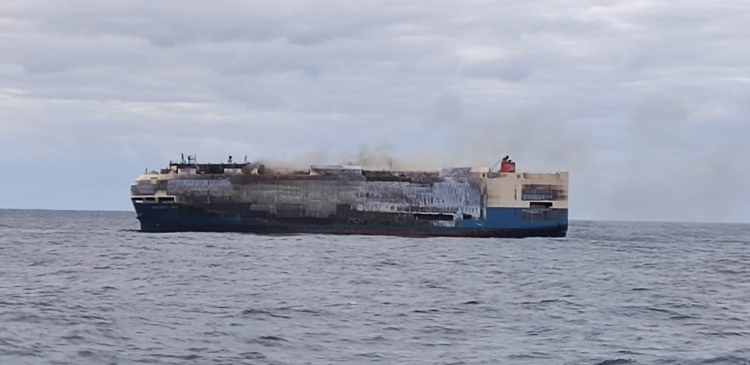
While the precise cause of the Felicity Ace fire is still unclear, officials have pointed to the onboard electric vehicle batteries as a potential complicating factor in battling the blaze.
The lithium-ion batteries from electric vehicles (EVs) inside the cargo ship could complicate firefighting efforts, requiring extensive water and temperature-reduction measures. Experts say that when on fire, these batteries are difficult to extinguish with water, and the flames can often rekindle due to residual heat. There is also a risk of explosion from flammable vapors if such batteries reach high temperatures.
Nonetheless, the onboard car batteries and fuel carry potential threats beyond firefighting. The environmental experts were further concerned that the incident might have broader implications for the marine ecosystem surrounding the accident site, i.e., the Azores archipelago.
The Azores is located in the middle of the Atlantic, about 1,000 miles from the mainland, and provides a vital habitat for many underwater creatures like coral reefs, tuna, sharks, and dolphins. The surrounding underwater mountains also make it an important stopping point for migrating whales looking to feed. Unfortunately, the Felicity Ace accident caused over 2,000 tons of oil, fuel, and other pollutants to spill into the Azores’ marine ecosystem.
Although the managers of Felicity Ace stated that only a thin film of oil had surfaced, experts believe that sunken car batteries and tanks of oil and gas pose a significant threat to marine life.














